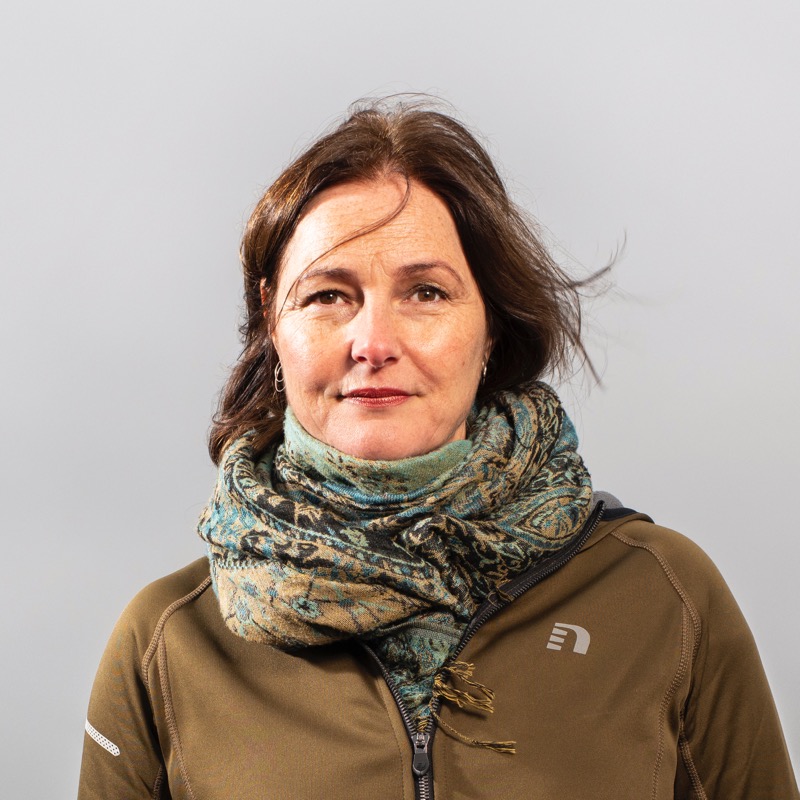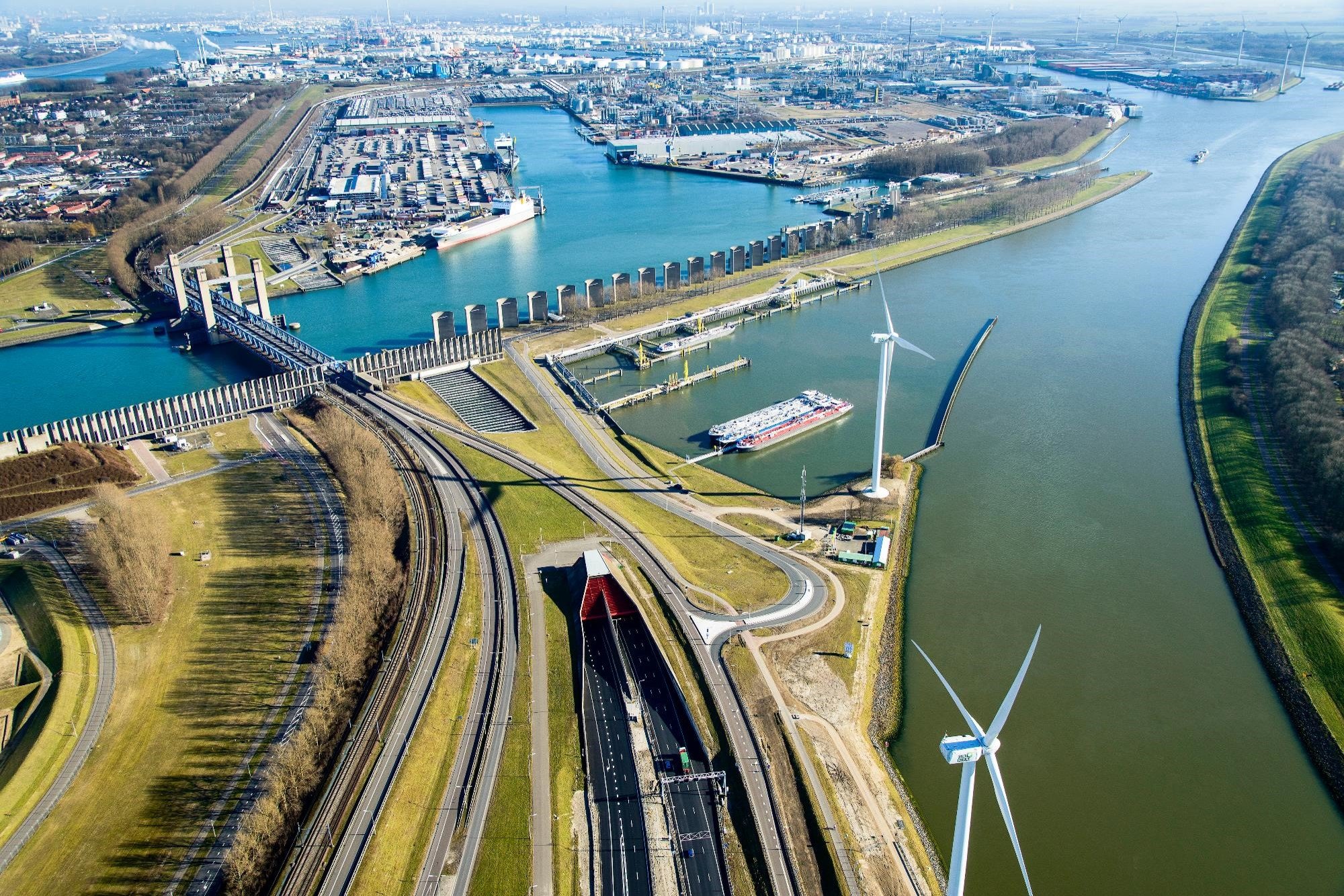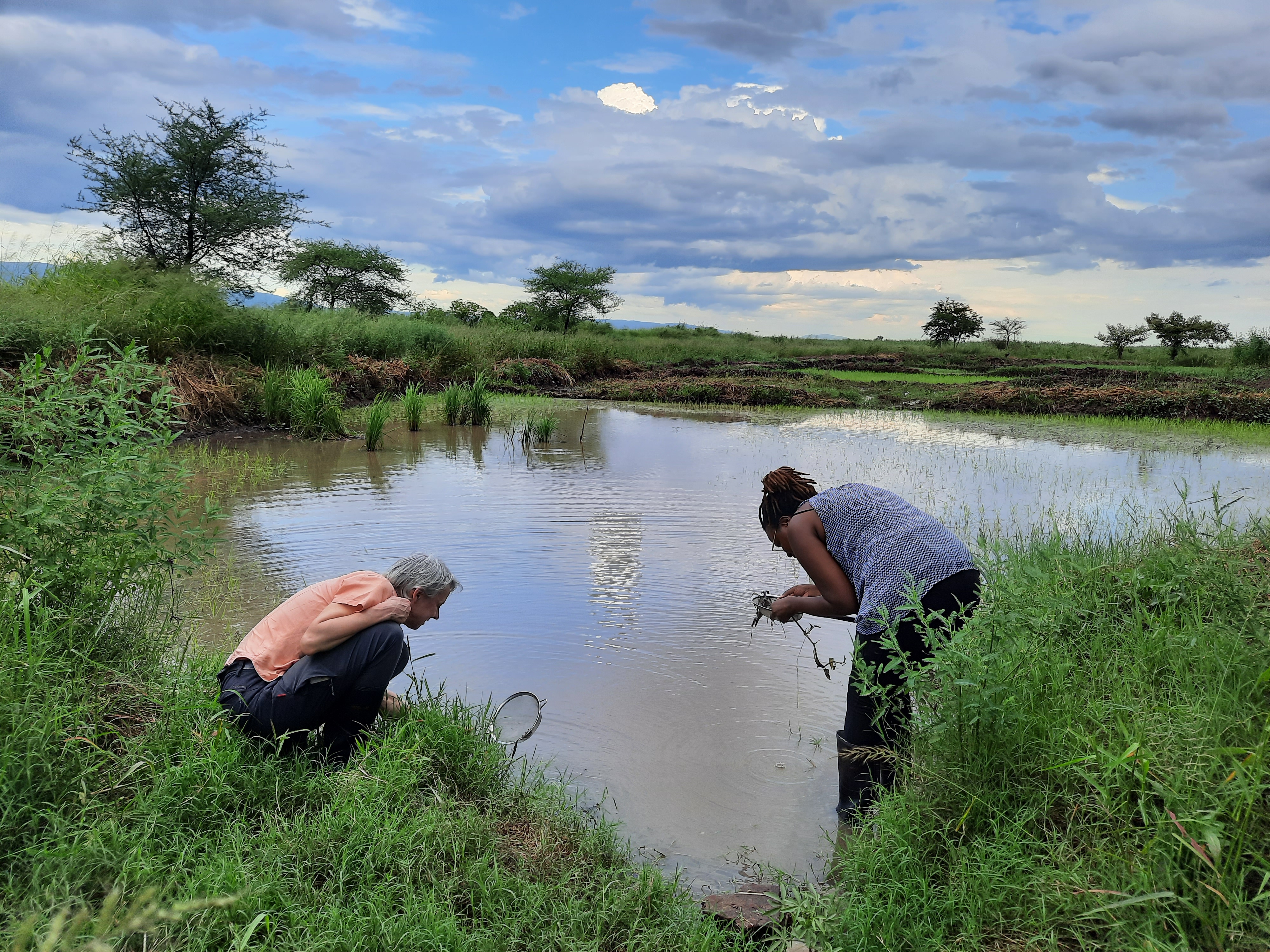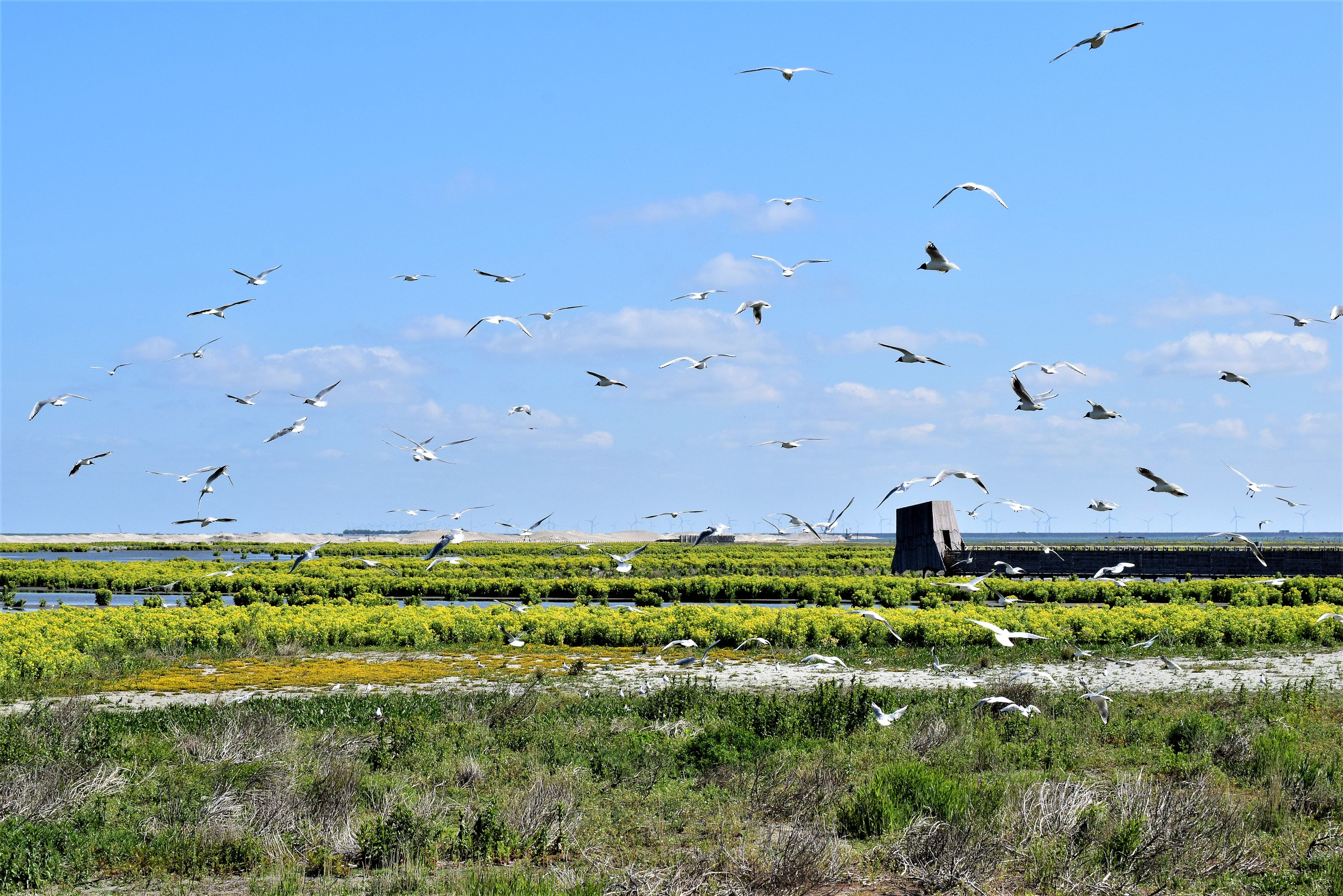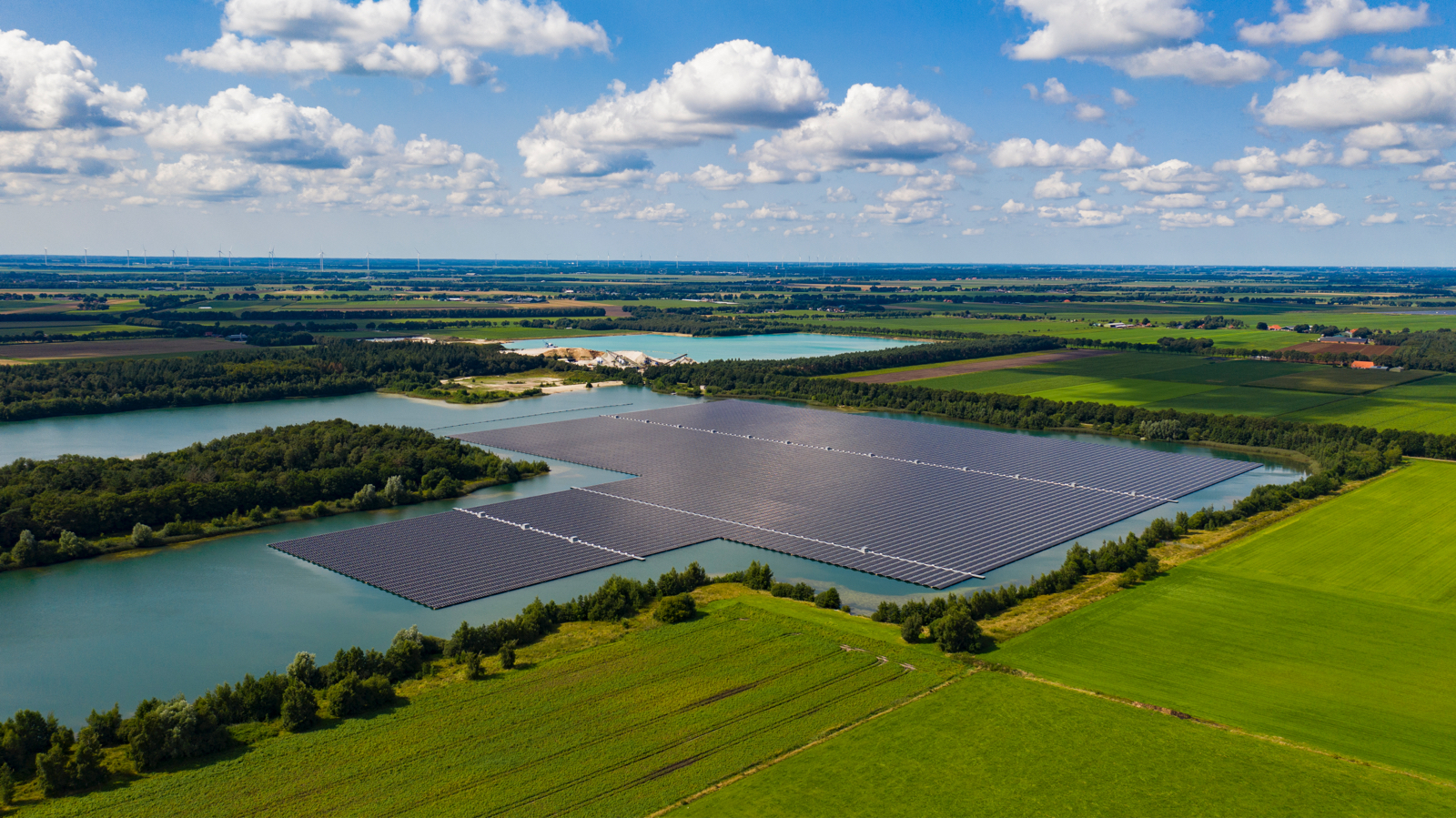Advancing floating solar
To beat climate change, our electricity mix is going to need a lot more renewable energy at a rapid pace (IPCC, 2022). Solar energy – photovoltaic technology - is seen as one important pathway. An obstacle, however, is the availability of space. A possible solution is to take to inland or offshore waters with floating solar plants. Nevertheless, it is crucial to consider the impacts on life under and above the panels. Public authorities and the solar industry are aware of the potential risks for the environment but the impacts have not yet been quantified, nor are guidelines for designs with a low environmental impact available as yet.
Building knowledge about the environmental impact of floating solar
Deltares is working with industrial parties, governments and knowledge partners on quantifying the impact of floating solar on waterbody thermal stratification, chemical composition, and food webs, and therefore on biodiversity under and above floating solar. The goal is to provide tools and guidelines for the energy sector and to allow authorities to design floating solar plants in such a way that they will have a minimal or even positive impact on water quality and biodiversity. This will contribute to Dutch national goals such as improving water quality, a sustainable North Sea and rivers, and renewable energy, as well as to SDG 15.9 on integrating ecosystem and biodiversity values.
'For Rijkswaterstaat, it is important to have an understanding of the effects of floating solar on water quality and ecology, whether it is in the sea or inland waters. Rijkswaterstaat relies on Deltares to map out the expected effects so that Rijkswaterstaat can confidently permit floating solar farms.'
Rik Jonker, Rijkswaterstaat
Monitoring the effects of floating solar energy on water quality
Most commercial floating solar plants are currently located on inland waters. That began with small water bodies such as basins in wastewater treatment plants that do not directly impact larger water bodies and nature reserves. Larger, isolated, water bodies such as sand pit lakes have now been selected to accommodate floating solar, providing a living lab for determining the environmental impacts. With private partners (GroenLeven, Ventolines BV, Evides, Indymo) and government authorities (Rijkswaterstaat and regional water managers), we are monitoring the impact of these floating solar panels on water quality parameters. Continuous measurements show that, in the case of several parameters, there is a difference between the situation under the panels and in the open water. Some of the insights are shown in Figure 1.
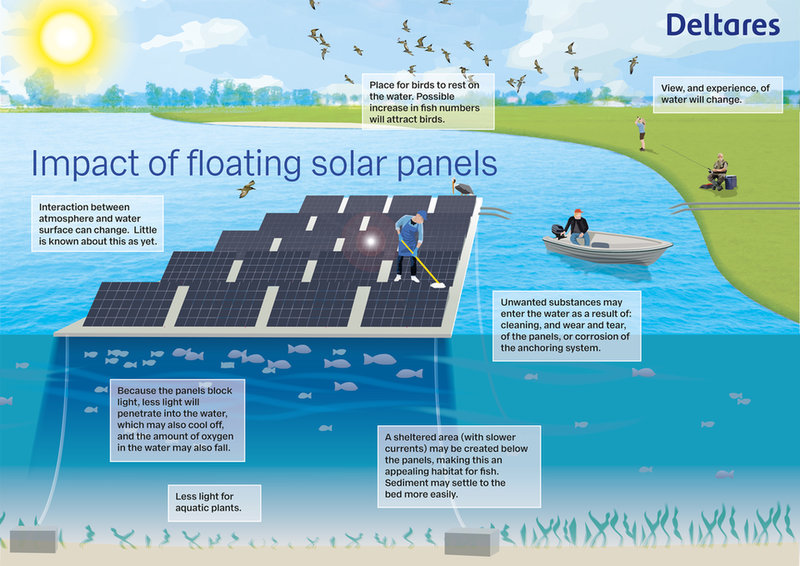
Potential positive and negative effects of a floating solar farm
Analysing the changing behaviour of river systems
Climate change also has an increasing impact on the behaviour of our river systems. As one of the important key items within the IRM (Integral River Management) program of the Dutch government Deltares carried out a thorough system assessment to understand the processes and the impact on the user functions along the river. In close collaboration with the public and private sector, in 2021 Deltares developed proof of concepts and strategies for sustainable sediment use, to create added value for river management, ecology and spatial quality in the Rhine Meuse area.
Floating solar farm concepts to be tested at a small scale in the North Sea
One of the advantages of offshore floating solar applications is the availability of many square miles of space. However, before commercial application is feasible, there are the harsh offshore conditions to deal with. Several pilot projects are now being subsidised by the Dutch Ministry of Economic Affairs and installed in the North Sea by the solar industry. The possibilities for multi-use with offshore wind farms are also being evaluated These projects have been initiated by private parties like SolarDuck or Oceans of Energy and they provide Deltares and other knowledge partners with the opportunity to learn about the potential environmental impact and how to tackle the technical challenges. If the pilot projects deliver the expected results, they can easily be upgraded to the gigawatt scale in response to the growing global demand for electricity

Monitoring effects of a floating solar farm
All Sendai priority’s

